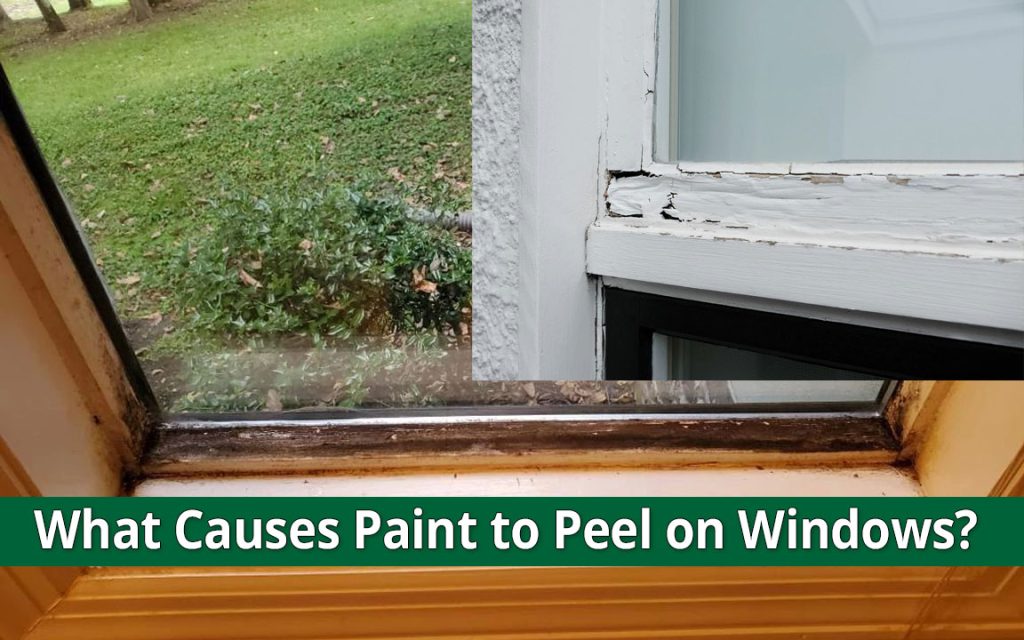MENU


Paint doesn’t last forever and it needs regular maintenance. If done right, paint should last for a few years, under ideal circumstances. If the paint on your window frames is peeling, knowing why can help you take care of your window frames and avoid this problem in the future. It could be that the paint has lived out its service life – or it may be that environmental factors is causing the paint to fail prematurely. Here’s what you need to know.
It’s a tedious fact of life that proper surface preparation is the key to a successful paint job, no matter what you’re painting. You can’t just slap another coat of paint onto old paint and expect it to last. In order for all the effort of your paint job to be worthwhile, you have to do some more work to ensure that your new paint will properly adhere to the existing surface.
To be applied properly, the window frame surface must be cleaned of any dirt and debris, loose paint removed and the entire surface roughed up with sandpaper to ensure the new paint has something to grab onto. Once you’re done with sanding it’s a good idea to wash down the surface and then allow it to completely dry before any paint is applied. If the surface is not prepared, cleaned and dried before the paint is applied, or if the paint is applied under the wrong conditions (see below), it will not last and will begin to peel or bubble prematurely.
Paint needs to be applied in a certain temperature range, and should be allowed to cure for a period of time before the first rains hit the paint. Temperature ranges and curing times can vary by paint type, so it’s important to read your specific paint can before applying paint to the window frames.
One more thing to remember: exterior window surfaces must be painted in exterior-grade paint. Interior window surfaces should be painted with interior-grade paint. Buy the right type of paint for the job before starting your painting project!
Moisture from a leak can cause paint to peel, or it can make the paint become moldy and mildewy. This can happen indoors or out. You may even notice the paint becoming stained with water stains, which are indications of water damage underneath the paint.
Leaks can occur when the seal around the windows breaks down, or when the windows are not properly installed. This can be avoided by working with a capable dealer and installer at the time of window purchase, and by maintaining your windows on a regular basis. Inspect your windows for signs that they need to be re-caulked and re-sealed when you’re doing your usual home maintenance at the end of the summer.
Paint doesn’t last forever. Interior paint can last for 10 years, but good exterior paint typically only lasts about five years. If the paint around your windows lasted for many years before it began to fade or chip away, this is an indication that the paint was well-applied and now only needs to be re-applied because it has reached the end of its service life.
This is a good thing! It means that you did a good job when you painted your windows the last time. Use these same best practices to re-paint your windows this time.
Renewal by Andersen of Long Island sells window frames made from Fibrex material, a durable, long-lasting composite wood that never needs to be repainted or refinished. If you’re tired of repainting your windows every few years, then you might be happier if you install replacement windows from Renewal by Andersen of Long Island. To get started with your window replacement, call our toll-free number today at 866-609-5033 or fill out the short form on this page.

Learn Everything You Need to Know BEFORE Buying Replacement WindowsClick Here to Download Now!